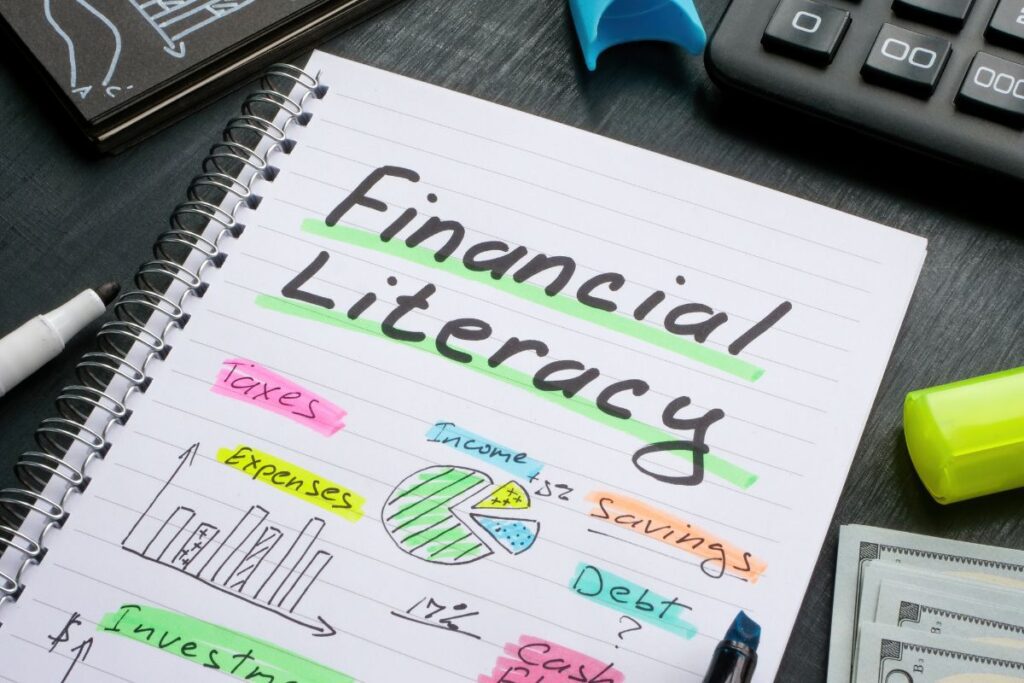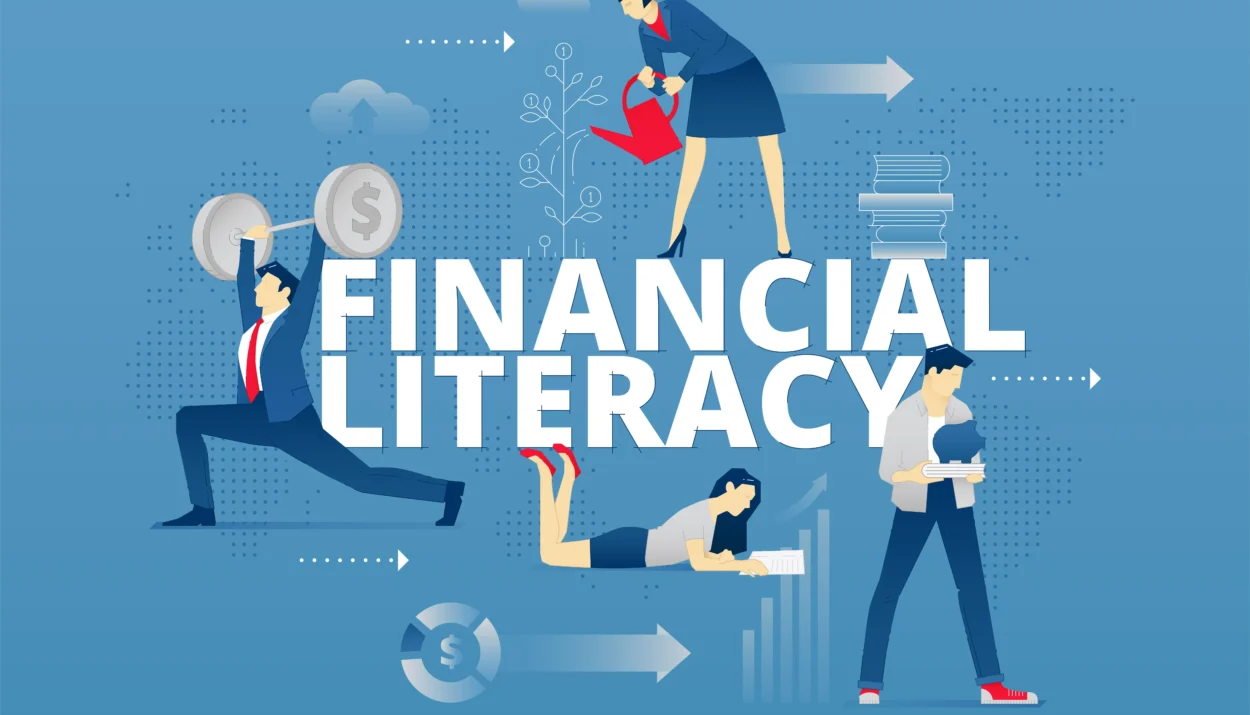In today’s complex world, financial literacy is more critical than ever. Yet, many people lack the knowledge needed to manage their finances effectively. Financial literacy is more than just understanding how to balance a checkbook or being able to compare credit card offers. It’s a deep comprehension of how money works in our world—how one makes, manages, and invests it. This article explores the concept of financial literacy, its components, and why it is crucial for everyone and gives a crucial test for checking your financial knowledge.
“If you don’t understand the language of money, and you don’t have a bank account, then you’re just an economic slave”
John Hope Bryant
What Is Financial Literacy?
Financial literacy refers to the ability to understand and effectively use various financial skills, including personal financial management, budgeting, and investing. It is a combination of financial knowledge, skills, and attitudes necessary to make informed decisions in a financial context. Financial literacy empowers individuals to make responsible and effective decisions regarding their personal finances, which in turn leads to better financial outcomes.

A financially literate person can understand the basic financial concepts required for managing money, such as:
- Budgeting: Creating and sticking to a budget to ensure that spending does not exceed income.
- Saving: Understanding the importance of saving and the different methods and vehicles for saving, like savings accounts and certificates of deposit.
- Investing: Knowing how to invest money wisely in stocks, bonds, mutual funds, and other assets to build wealth over time.
- Debt Management: Understanding how to manage debt, including the use of credit cards, loans, and mortgages, and knowing how to avoid high-interest debt.
- Risk Management: Learning how to protect oneself against financial loss through insurance and other risk management tools.
Financial literacy also involves being aware of the importance of financial planning for the future, such as retirement planning and estate planning. It’s not just about acquiring information; it’s about understanding the implications of financial decisions and how they affect one’s overall financial health.
Why Financial Literacy Is Important
Financial literacy is important for several reasons:
- Empowerment – Financial literacy enables informed decisions, effective money management, and future planning, preventing debt and poverty.
- Financial Health – It fosters stability by promoting budgeting, saving, and investing, leading to secure financial well-being.
- Decision-Making – Enhances the ability to choose wisely, aligning financial actions with long-term goals.
- Stress Reduction – Reduces financial anxiety by providing skills to manage money confidently.
- Fraud Protection – Helps recognize and avoid scams, safeguarding against losses.
- Economic Impact – Boosts the economy through better individual savings and investments.
- Long-Term Planning – Essential for preparing for major life events like retirement and home ownership.

Improving Literacy of Finances
Improving financial literacy is an ongoing process, achievable through various methods:
Education and Resources – Numerous online resources, courses, and workshops are available to enhance financial literacy. Websites like Investopedia, MyMoney.gov, and NerdWallet provide comprehensive information on personal finance topics.
Practical Experience – Learning by doing is also essential. Start with simple tasks like creating a budget, gradually moving on to more complex financial activities like investing. Over time, practical experience will build your confidence and understanding of financial concepts.
Professional Advice – For complex financial matters, seeking advice from a financial professional can be beneficial. Financial advisors can help develop personalized strategies to meet specific financial goals and provide clarity on complicated topics like retirement planning or tax strategies.
Financial Tools – There are various financial tools available, such as budgeting apps, retirement calculators, and investment platforms, that can help manage finances more effectively. These tools can simplify financial tasks and provide valuable insights into your financial situation.

EXPERIMENT: To better understand Americans’ financial literacy, Professor Annamaria Lusardi and Professor Olivia Mitchell designed three multiple-choice questions, known as the Big Three. You can test yourself on these, below, and find out the answers here:
1. Suppose you had $100 in a savings account and the interest rate was 2% per year. After five years, how much do you think you would have in the account if you left the money to grow?
2. Imagine that the interest rate on your savings account was 1% per year and inflation was 2% per year. After one year, with the money in this account, would you be able to buy…
3. Do you think the following statement is true or false? Buying a single company stock usually provides a safer return than a stock mutual fund.
Reference:










